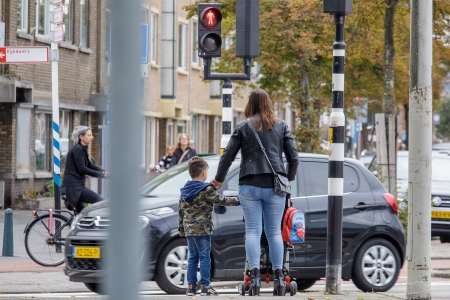Education programmes that are designed to increase young people's resilience to risk and (perceived) social pressure in a broad sense and are not or barely about road user behaviour can still have an effect on road safety.
This was found, for example, in a longitudinal Australian study of young drivers. The crash risk of young people who had attended a one-day workshop and various follow-up activities aimed at reducing risky behaviour and increasing resilience in a broad sense was compared with the crash risk of young people who had attended a one-day course specifically focusing on traffic risks. In the former group, the crash rate decreased by 44%, while there was no effect on crash rate in the latter group [44]. After 13 years, the participants of the general resilience training were still found to have a lower crash risk [45].
A Dutch example of an education programme that only indirectly deals with traffic, but also aims to have an effect on road user behaviour, is 'Fight your inner monkey' by Veiligheid.nl [46]. This programme aims to make 15- to 17-year-olds aware of peer pressure and how this can lead to unsafe situations. An evaluation in 2013 (mentioned in the 'Toolkit Verkeerseducatie' [8]) showed that, compared to pupils in a control school, the project participants had more knowledge about peer pressure and therefore were able to better recognise situations in which peer pressure occurs.
